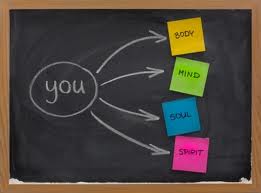- Mend
- Posts
- How the Ego Plays a Role in Infidelity
How the Ego Plays a Role in Infidelity
How the Ego Plays a Role in Infidelity
Infidelity is a complex and multifaceted issue, often stemming from various underlying factors. One of the significant elements contributing to infidelity is the role of the ego.
When you are unfaithful, your ego can play a crucial role in driving your actions and justifying your behavior. Understanding how the ego influences infidelity can provide insight into your actions and help in the healing and recovery process.
The Nature of the Ego
The ego is essentially your sense of self-importance and self-esteem. It's the part of you that seeks validation, recognition, and admiration from others. While having a healthy ego is essential for self-confidence and personal growth, an inflated or fragile ego can lead to destructive behaviors, including infidelity.
Seeking Validation and Attention
One of the primary ways your ego influences infidelity is through the need for validation and attention. If you feel undervalued or unappreciated in your primary relationship, you may seek out an affair to boost your self-esteem. The attention and admiration from someone new can make you feel desired and important, temporarily filling the void left by unmet emotional needs.
Thrill and Excitement
The ego thrives on excitement and novelty. The thrill of an affair can be incredibly appealing to your ego, providing a sense of adventure and a break from the monotony of everyday life. This excitement can make you feel more alive and invigorated, feeding your ego's desire for stimulation and novelty.
Power and Control
Infidelity can also be about exerting power and control. Your ego may crave dominance and influence, and having an affair can make you feel more powerful. The secrecy and control over two relationships can boost your ego, giving you a false sense of superiority and control over your life.
Justifying Your Actions
When you engage in infidelity, your ego often steps in to justify your actions. You might rationalize the affair by blaming your partner for not meeting your needs or by convincing yourself that you deserve happiness and fulfillment, even if it comes at the expense of your primary relationship. This self-justification helps protect your ego from feelings of guilt and shame.
Fear of Vulnerability
A fragile ego can make you fear vulnerability and rejection. You might seek an affair to avoid facing the emotional risks and challenges in your primary relationship. By turning to someone else, you can maintain a sense of invulnerability and avoid the deep emotional work required to address issues in your primary relationship.
Overcoming Ego-Driven Infidelity
Understanding the role of your ego in infidelity is the first step toward healing and recovery. Here are some strategies to help you overcome ego-driven behaviors:
Self-Reflection and Awareness: Take time to reflect on your actions and understand the underlying ego-driven motives. Acknowledge the role your ego played in your infidelity.
Seek Professional Help: Consider therapy or counseling to work through your ego issues and develop healthier coping mechanisms. A professional can help you understand and address the root causes of your behavior.
Develop Emotional Intelligence: Work on improving your emotional intelligence, including self-awareness, self-regulation, empathy, and social skills. This will help you manage your ego and build healthier relationships.
Communicate Openly: Foster open and honest communication with your partner. Address your unmet needs and work together to strengthen your relationship, rather than seeking validation outside of it.
Build Self-Worth: Focus on building your self-worth from within, rather than relying on external validation. Engage in activities that boost your self-esteem and make you feel good about yourself.
Embrace Vulnerability: Allow yourself to be vulnerable with your partner. Addressing your fears and insecurities openly can lead to deeper intimacy and a stronger connection.
Conclusion
Infidelity is often driven by ego-related issues, such as the need for validation, excitement, power, and the fear of vulnerability. By understanding how your ego influences your actions, you can take steps to address these underlying issues and work toward healing and rebuilding your relationship. Recognizing and managing your ego is essential for personal growth and developing a healthier, more fulfilling relationship with your partner.
“Though no one can go back and make a brand new start, anyone can start from now and make a brand new ending.”

Individual Coaching for Unfaithful Men & Women
Embarking on a journey of healing and personal growth after infidelity is a courageous step towards rebuilding trust and creating a brighter future.
With Doug's guidance and support, you will have the opportunity to delve deep into self-exploration, understand the root causes of your actions, and develop the necessary tools for personal transformation.
Our individual coaching program for unfaithful men and women offers a confidential and non-judgmental space, where you can find guidance, accountability, and support tailored to your unique needs.
Take the first step towards healing and rebuilding trust by investing in yourself and discovering the path to a more fulfilling and authentic life.
From the World of Self-Improvement
Relationships
Emotional/Mental Well-being
Personal Growth
Physical Well-being
Professional & Financial
Whenever you’re ready, there are 2 ways we can help you:
1. If you’re still looking for traction in your affair recovery experience, we’d recommend starting with an one of our affordable programs. Here are 2 options:
→ Survive and Thrive after Infidelity – A unique and complete resource that will guide you through the recovery and healing process starting at D-day. It will provide you with the knowledge and tools to not only survive the affair, but thrive! Get started now!
→ The Unfaithful Person’s Guide to Helping Your Spouse Heal From Your Affair: For the struggling unfaithful person, this program delves into the 24 ‘tasks’ that the cheater must complete for them to move from betrayer – to healer, while gaining a better understanding of their betrayed partner and what he/she is going through. Become a healer.
2. Individual Mentoring – Whether you’re the betrayed or the betrayer, to talk to someone who has gone through what you’re going through and who can listen and empathize with you is an incredibly powerful and valuable thing. It’s not just sympathy – it’s empathy – and it’s irreplaceable. Reserve a session (limited spots available).
Take care!
Linda & Doug
You are receiving this email because you signed up for the Mend newsletter.
Was this email forwarded to you? Get your own sub here.





:max_bytes(150000):strip_icc()/Mentalhealthtemplate1-95fd48225d10432cbd127888a649c3ff.png)






